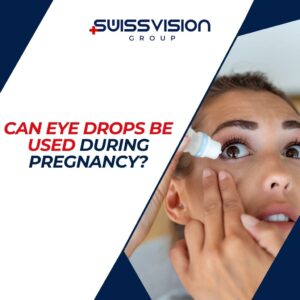Surgical operations in the eye may cause different side effects. We can say that this is also the case for cataract surgery. The most common question here is whether there is a risk of developing dry eye after cataract. So can cataract surgery really cause the risk of dry eye?
The Relationship Between Cataract Surgery and Dry Eye
Yes, dry eye (dry eye) can develop after cataract surgery and is quite common. The reasons for this are:

Surgical Trauma Incisions made in the eye during cataract surgery and trauma to the front surface of the eye (cornea) can cause damage to the nerves in the eye. These nerves are responsible for tear production and the proper distribution of tears. This damage can lead to decreased tear production and dry eye.
- Deterioration of the Tear Film Layer: The procedures applied to the cornea during cataract surgery can disrupt the structure of the tear film. This may cause evaporation of tears and increase dry eye.
- Side Effects of Drugs: Medications such as steroid drops and antibiotics used after surgery can trigger dry eye. These drugs may adversely affect the oil and water layer in the eye and reduce tear quality.
- Age Factor: Cataract surgery is usually performed at advanced ages. As age advances, tear production naturally decreases, which increases the risk of postoperative dry eye.
- Existing Dry Eye: Mild dry eye that is already present before surgery may worsen with surgical intervention. If there is a problem in tear production before surgery, this problem may increase after surgery.
- Temporary Disruption of Corneal Nerves: While the nerves in the cornea temporarily heal after cataract surgery, the reflex response of the eye related to tear production may weaken. This may cause temporary dry eye.
Dry eye after cataract surgery is usually temporary and treatable. Artificial tear drops, tear retention therapies or medications prescribed by a doctor can be used to alleviate this condition.




